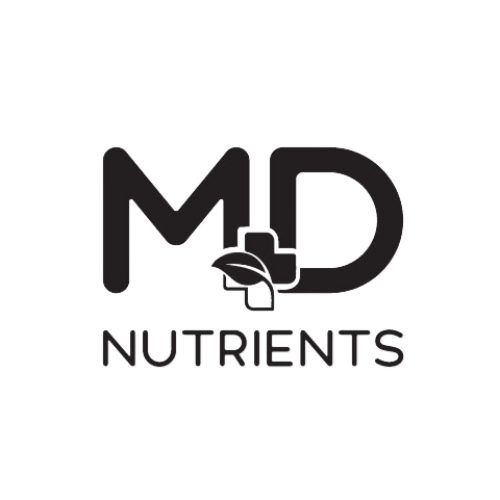
Introduction: Multivitamins – Myths vs. Facts
Multivitamins are one of the most commonly used dietary supplements, yet there is a lot of confusion and misinformation surrounding them. Some believe multivitamins are unnecessary, while others think they are a cure-all. This article aims to debunk the most common myths about multivitamins and provide clear, factual insights on how they can support your overall health.
Common Myths About Multivitamins
Myth 1: “You Don’t Need Supplements if You Eat Healthy”
One of the most pervasive myths is that if you maintain a balanced diet, you don’t need multivitamins. While it’s true that eating a variety of nutrient-dense foods is essential for good health, most people do not meet all their nutritional needs through diet alone. Modern agricultural practices, soil depletion, and lifestyle factors like stress can make it difficult to get enough vitamins and minerals. A quality multivitamin can help fill these gaps, ensuring you receive adequate nutrients.
Myth 2: “All Multivitamins Are the Same”
Many people believe that all multivitamins are essentially identical, and it doesn’t matter which brand you choose. In reality, the quality of multivitamins varies significantly. Some products may contain lower-quality ingredients or include synthetic forms of vitamins that are harder for the body to absorb. In contrast, high-quality multivitamins, such as those offered by MD Nutrients, use bioavailable forms of nutrients, ensuring better absorption and effectiveness.
Myth 3: “Supplements Are Not Regulated or Safe”
Another common misconception is that dietary supplements, including multivitamins, are not regulated and are therefore unsafe. While it’s true that supplements are not subject to the same rigorous regulations as pharmaceuticals, reputable brands like MD Nutrients adhere to strict quality standards. Their products undergo third-party testing to ensure purity, potency, and safety, giving consumers peace of mind.
The Truth About Multivitamins and Nutrition
How Multivitamins Fill Nutritional Gaps
Even with a healthy diet, certain lifestyle factors like stress, aging, or medical conditions can increase your need for specific vitamins and minerals. Multivitamins are designed to help meet those needs, providing a broad spectrum of nutrients that can enhance your overall health. For example, vitamin D and magnesium deficiencies are common even in those who eat well, and multivitamins can help address such shortages.
Why Quality Matters in Supplement Formulations
When it comes to multivitamins, quality is paramount. Low-grade supplements may contain fillers, artificial ingredients, or lower-quality nutrient forms that are less effective. MD Nutrients prioritizes quality, using only high-grade, bioavailable forms of essential vitamins and minerals. Their formulations are free from unnecessary additives, ensuring that you receive the nutrients your body needs without harmful substances.
How MD Nutrients' Multivitamins Stand Out
MD Nutrients’ multivitamins are formulated with precision, using cutting-edge science and natural ingredients to ensure maximum efficacy. What sets MD Nutrients apart:
- High-Quality Ingredients: MD Nutrients uses bioavailable forms of vitamins and minerals that are easily absorbed by the body, maximizing the benefits of supplementation.
- Scientifically Backed Formulas: Each ingredient in their multivitamins is carefully chosen based on clinical research to support optimal health.
- No Fillers or Additives: Their products are free from unnecessary fillers, artificial colors, and preservatives, ensuring a clean and pure supplement.
MD Nutrients also takes an ethical approach to sourcing ingredients, ensuring that their supplements are not only good for you but also good for the planet.
Frequently Asked Questions About Multivitamins
Q1: Are multivitamins safe to take daily?
Yes, for most people, taking a multivitamin daily is safe and beneficial, especially if you have specific nutrient deficiencies. However, it’s always best to consult with a healthcare provider before starting any supplement regimen.
Q2: Can multivitamins replace a healthy diet?
No, multivitamins are designed to complement, not replace, a healthy diet. Whole foods provide important fiber, antioxidants, and other nutrients that supplements cannot fully replicate.
Q3: How do I know if I need a multivitamin?
If you have dietary restrictions, a busy lifestyle, or experience fatigue or frequent illness, a multivitamin may help. A healthcare provider can run tests to check for specific nutrient deficiencies.
Q4: When is the best time to take a multivitamin?
It’s generally best to take multivitamins with food, as some nutrients, like fat-soluble vitamins (A, D, E, and K), require dietary fats for absorption.
Q5: What should I look for in a high-quality multivitamin?
Look for a product that uses bioavailable forms of nutrients, has undergone third-party testing, and is free from unnecessary additives or artificial ingredients.
Conclusion: Make the Right Choice for Your Health with MD Nutrients
Multivitamins can be an essential part of a well-rounded approach to health, helping fill nutritional gaps and support overall wellness. However, it’s important to choose a high-quality product that uses effective, bioavailable ingredients. MD Nutrients’ multivitamins stand out for their superior formulation, commitment to purity, and focus on providing the best possible nutrients for your body. By incorporating a quality multivitamin into your daily routine, you can support your health in a holistic and sustainable way.

